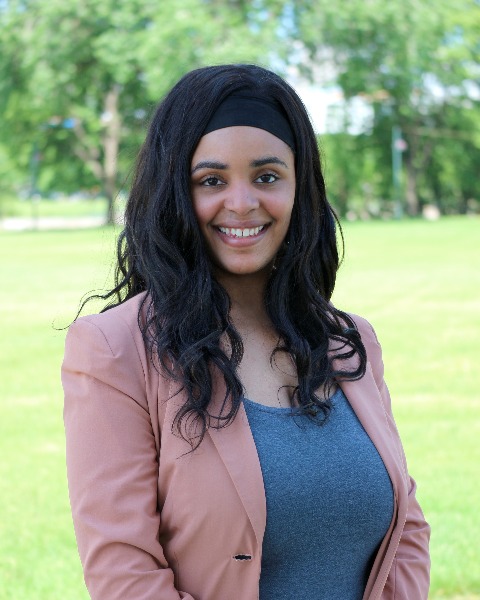Panel
Graduate Student and New Evaluators
Introducing the AEA Student Evaluation Case Competition: A case of the Indiana storytelling organization
.jpg)
Dana J. Linnell, PhD (she/they)
Assistant Professor
University of Wisconsin-Stout, Wisconsin, United States.jpg)
Dana J. Linnell, PhD (she/they)
Assistant Professor
University of Wisconsin-Stout, Wisconsin, United States
Asma Ali, PhD
Specialist Master
Deloitte, United States
Carolina De La Rosa Mateo, MPH (she/her/hers)
Project Manager
Causal Pathways, United States- MT
Megan Telligman (she/her/hers)
Director of Programs
Indiana Humanities - MJ
Meg Johnson, M.S. (all pronouns)
Research Assistant
University of Massachusetts Lowell
Andover, Massachusetts, United States - MD
- JF

Golnar Fotouhi, M.A. (she/her/hers)
Ph.D. Student
University of Massachusetts Lowell
Lowell, Massachusetts, United States- NS
Nadia Sahila, M.Ed.
Ph.D. Student
University of Massachusetts Lowell, United States - JL
Chair(s)
Disscussant(s)
Presenter(s)
Presentation 1
Title: An Overview of the AEA Student Evaluation Case Competition
Description: The panel presentation will begin with an overview of the AEA Student Evaluation Case Competition, including how it was formed and what the competition entails.
Presentation 2
Title: Describing the Case Organization
Description: This year’s case organization—chosen for its location near the AEA conference, its relevance to the conference theme, and other factors—will present their organization and their evaluation needs.
Presentation 3
Title: Announcing the Case Competition Winner!
Description: This year’s winning team--Evalu850--will present a brief presentation of their winning proposal and describe their experience competing in the case competition.
Relevance Statement: Evaluation case competitions have a long history, beginning in 1996 when Michael Obrecht founded the Canadian case competition. Czech Republic then started a competition in 2016 before the World Evaluation Case Competition (https://www.worldcasecomp.net/) was established in 2018, and both India and Cameroon began competitions in 2021. Since 2018, 185 students in 41 teams across 27 countries have competed in the world competition. As only one team in each country can compete in the world competition, AEA started a USA competition to choose the team to represent the United States in the 2023 WECC.
A working group was established in late 2022 to create and develop the case competition, including creating the case, selecting judges, soliciting team registrations, and managing the entire competition process from start to finish. The AEA case competition meets the associations’ values of a global and international evaluation community (iii) as well as the continual development of evaluation professionals and the development of evaluators from under-represented groups (iv) (https://www.eval.org/About/About-AEA/Mission-Vision-Values). It also meets the end goals of 1.4 in which student members have ample opportunities to develop the leadership skills and competencies needed to practice evaluation, contribute to the association, and the evaluation knowledge base.
From Aristotle to John Dewey, there have been many proponents of learning by doing.Cases serve as a useful tool for teaching students evaluation, as evidenced by an entire New Directions for Evaluation volume devoted to case-centered teaching and learning in evaluation (Volume 2021, Issue 172). A case is defined as “a series of events, real or imagined, that tell an evaluation story to promote student learning, including illustrating a concept, skill development, and facilitating critical thinking, among others” (Linfield & Tovey, 2021, p. 13). There exist many evaluation cases, and they vary widely in what they look like (Kallemeyn et al., 2021), although there are recommendations for what should be included in an evaluation case (Ensminger & Montrosse-Moorhead, 2020). Furthermore, cases support the development of evaluator competencies through developing critical analysis capabilities, increasing ability to make informed judgments, improving the understanding of ethical implications, developing problem-solving abilities, and clearly expressing their analysis (Bourgeois et al., 2021). They emphasize collaboration and communication among students. Overall, cases in evaluation—including case competitions—can help support the training and development of the next generation of evaluators.
Bourgeois, I., Wildschut, L., & Steinberg, M. (2021). How does teaching with cases support the development of evaluation competencies? New Directions for Evaluation, 2021(172), 37– 51. https://doi.org/10.1002/ev.20486
Ensminger, D. C. & Montrosse-Moorhead, B. (2020). Writing Evaluation Teaching Cases Checklist. Chicago, IL: Loyola University Chicago and Storrs, CT: University of Connecticut.
Kallemeyn, L. M., Titiml, E. N., Galib, L., Castelin, K., Montrosse-Moorhead, B., Ensminger, D. C., & Linfield, K. J. (2021). What are the characteristics of cases we use to teach and learn evaluation? New Directions for Evaluation, 2021(172), 19– 35. https://doi.org/10.1002/ev.20479
Linfield, K. J., & Tovey, T. L. S. (2021). What is the case for teaching with cases in evaluation? New Directions for Evaluation, 2021(172), 11– 18. https://doi.org/10.1002/ev.20480
